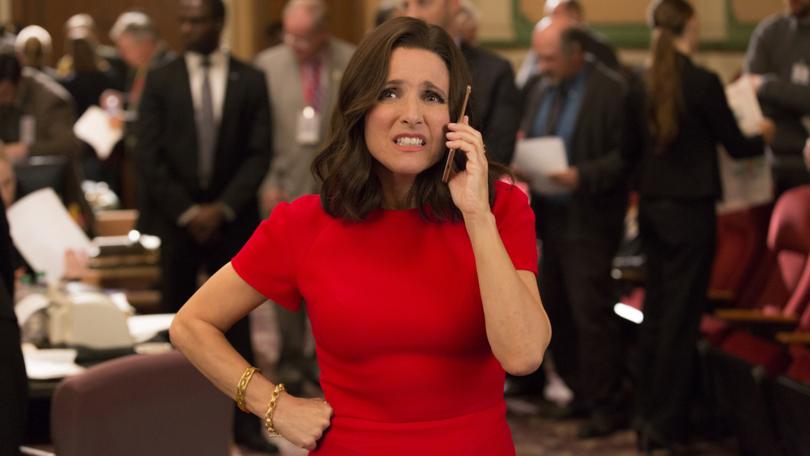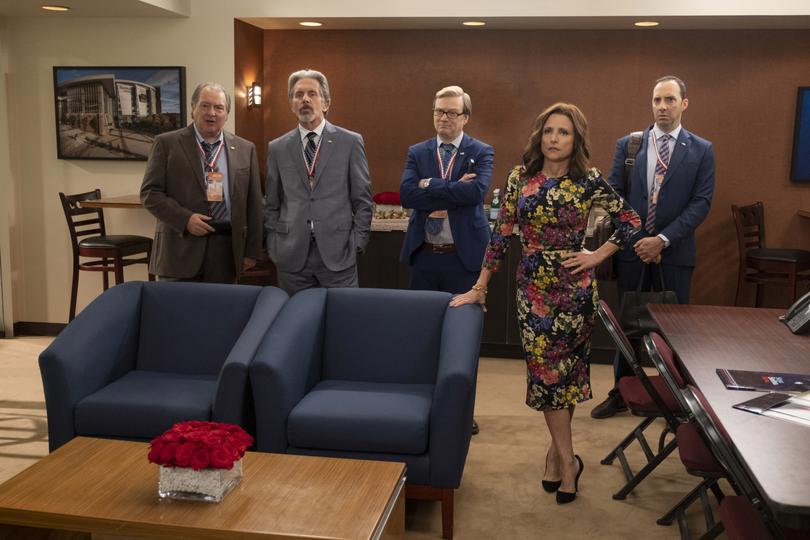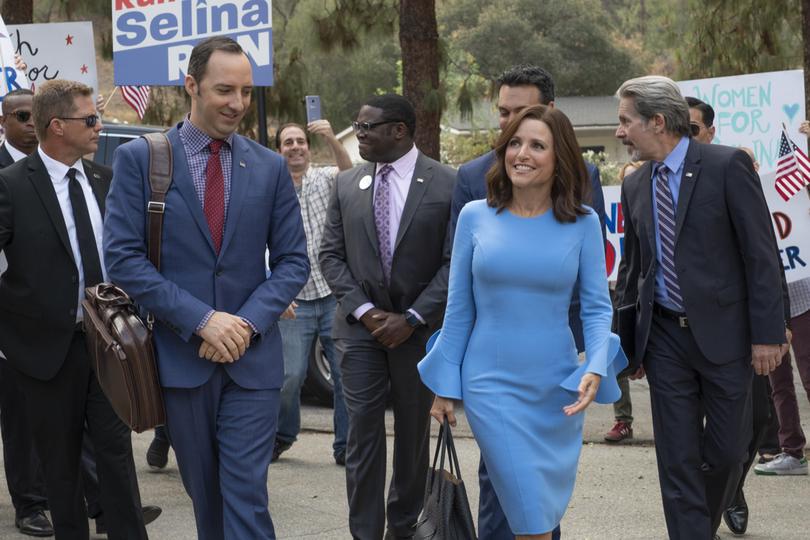Veep, Kamala Harris and political satire: Art imitates life imitates art
The best political satires are so effective precisely because they hew so close to reality. But beneath the laughs is the scary funhouse mirror of our political system.

In March 2016, Malcolm Turnbull had been back in the prime ministership for six months and was gearing up for an election.
He had a challenge on his hands: he wanted to convey the stability of keeping the Coalition government but also that it had been renewed under his leadership after he saw off Tony Abbott.
He was trying to sell, you might say as he certainly did, continuity and change.
Sign up to The Nightly's newsletters.
Get the first look at the digital newspaper, curated daily stories and breaking headlines delivered to your inbox.
By continuing you agree to our Terms and Privacy Policy.“As you go from one Liberal prime minister to another, you have continuity and you have change,” he said on 7.30.
He repeated those two words four more times on 3AW and it was also dropped by Coalition ministers, including Michaelia Cash and Mathias Cormann.
Continuity and change was a familiar pairing to any fans of American political satire Veep, which one imagines has its followers in Canberra.
It was the slogan that fictional vice president Selina Meyer (Julia Louis-Dreyfus) had slapped on her campaign bus in the show’s fourth season.
When the connection was made, Louis-Dreyfus tweeted, “I am dumbstruck”.

Almost everything on Veep is meant to be a cautionary tale, not a how-to guide.
One of the show’s writers, Simon Blackwell, told The Guardian at the time, “We needed it to be hollow and oxymoronic, to say absolutely nothing but seem to have depth and meaning”.
Blackwell said he laughed when he saw it had been adopted in earnestness by a national leader.
Veep is the creation of Armando Iannucci, the British writer who wrote on Alan Partridge before going off to birth his own stuff, most notably The Thick of It, Veep and Death of Stalin. His political satires remain his most cutting work.
Veep was in production on its fifth season when Donald Trump was campaigning for the presidency in 2016, and Iannucci called him a “walking satire balloon”. How do you caricature someone so exaggerated and absurd?
Veep is back in the headlines this week with Joe Biden announcing he will not run for a second term of the US presidency, passing the torch to his vice president, Kamala Harris.
For some people on social media, they discovered this news from a Veep clip that immediately made the rounds.
In it, Selina can barely contain her unadulterated joy when she tells her staff, “POTUS is not going to run for a second term, I’m going to run!”.
If you’ve never seen Veep before, the series follows Selina Meyer, an American vice president who has no power, no purpose and spends her days playing politics and obsessed with her image. Her staff are sycophants and incompetent and it paints the entire establishment as hopeless.
If you’re listening, you can probably hear the sound of throngs of people re-activating their Binge subscription because even though Veep wrapped in 2019, pick out any random episode and not only is it still bitingly funny, its scenarios are recognisable.
It’s disturbing how much it gets right.
There was a seventh season episode in which the character of Jonah, trying to drum up rage during a conservative rally, blames immigrants, and then an audience member yells out “Kill them!”.
Not long after during a Trump rally, someone in the crowd screamed “Shoot them!” while Trump blamed immigrants.
And when House of Cards was dominating TV culture during its halcyon days, what those working in Washington DC were saying was that their real-life experiences weren’t anything like that, nor was it like the high-minded ideals of The West Wing.
The show that most closely resembled their days? Veep.
Incompetence, bumbling and barely surviving.
The parallels are eerie. But that’s what the best political satires have always done. The writers observe what happens in the world around them and exaggerate and mock them. Of course, when politics has become a heightened version of itself, it makes satire look like a documentary.

David Mandel, who was the showrunner on Veep in its later seasons, wrote in 2019 in The Hollywood Reporter, that the writers used to sit around and challenge each other to come up with the dumbest thing they could think of, but they couldn’t catch the real-life politicians – “They’re doing stuff that we couldn’t invent if we tried”.
Perhaps Harris doesn’t want the comparison to Selina, who is undeniably self-serving, unprincipled, bungling and power-mad.
But, at least for now, the Veep memes are doing no harm.
If anything, Harris can capitalise on her candidacy’s association with a much-loved and critically acclaimed show that people remember with great fondness.
We can still, just about, separate satire from real life, even if how closely satire hews to the truth is distressing on another level. The funhouse mirror isn’t always so fun.
And look, it’s not all real – we hope. At least Iannucci still claims it isn’t.
In response to someone’s social media post in which they run down how Veep ends (and it’s a doozy), Iannucci replied, “Don’t forget, we made all that up, though”.
When another poster wrote, “Iannucci continuing to predict our political reality,” the master satirist said: “Still working on the ending”.
Harris probably wouldn’t want Iannucci to write hers.

